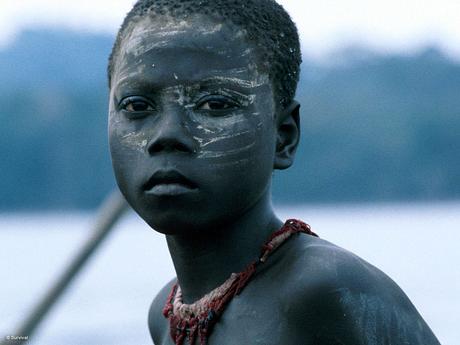Campaign wins back land for isolated tribe
December 14, 2004
This page was last updated in 2004 and may contain language which is now outdated.
Authorities in India have bowed to local and international pressure and increased the size of the reserve set aside for the recently-contacted Jarawa tribe. The reserve, which is crucial for the tribe's survival, has been enlarged by 180 sq km. The new area includes important sources of fresh water for the Jarawa, and a length of coastline rich in fish.
The government has also announced plans to combat the rampant poaching of the Jarawa's game and fish, which if successful will make the tribe's existence more secure.
The 270 Jarawa people of the Andaman Islands, India, live by hunting and fishing in the forest and along the coast of their stunningly beautiful Indian Ocean islands. The Jarawa and the three other tribes of the Andaman Islands are thought to have migrated from Africa up to 60,000 years ago. They are totally distinct from any other Indian peoples, and DNA tests suggest their closest relatives are African. The Jarawa have only in the last few years stopped resisting all contact with outsiders and shooting arrows at those entering their territory.
A Jarawa reserve was established in 1957 to protect the tribe's territory. But since the 1970s, the government has taken land for logging, for settlers from the Indian mainland, and for the highway that runs illegally through the Jarawa's land. The road remains open despite a supreme court ruling to close it in 2002.
In the first ever interview given by a Jarawa to an Indian newspaper, Enmei, a Jarawa man, says, 'The outsiders are bad men… They abuse us… The jungle is better. Even if I have to stay outside for a few days, I would like to return to my family in the jungle.'
Photos and footage available. For more information contact Miriam Ross on (+44) (0)20 7687 8734 or email [email protected]



